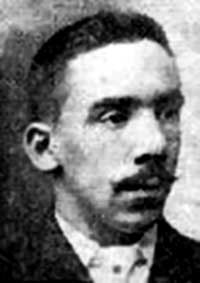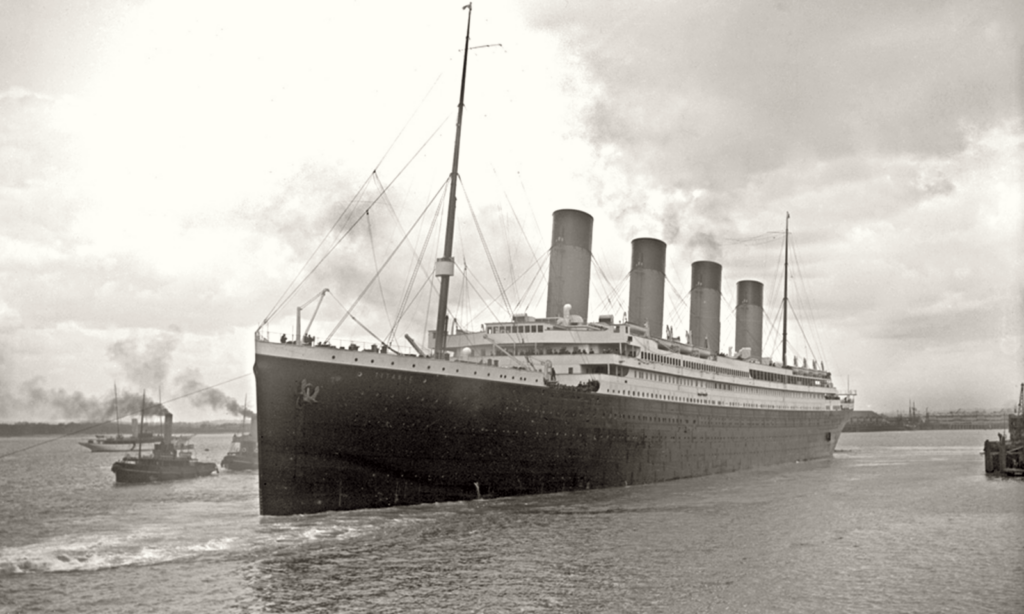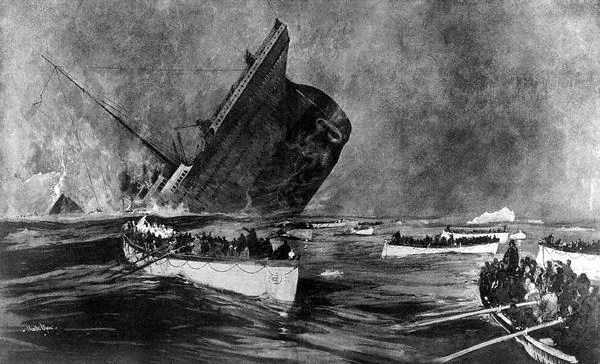Charles Joughin was an acclaimed chef. He was best known for being the head baker on the RMS Titanic.
Although the extravagance of the voyage is well known, the pastries that Joughin was responsible for creating are not why he is remembered. Instead, Joughin is best known for his remarkable survival in the face of imminent death.
Historians and scientists attribute his survival to one thing: the sheer amount of alcohol he consumed that night.

The Unsinkable Ship
On April 10, 1912, the maiden voyage of the RMS Titanic would begin. At the time, the Titanic was one of the largest passenger ships in the world. It was one of three Olympic-class ships designed by the White Star Line.
The ship had ten decks, could carry almost 2500 passengers, and was manned by nearly 1000 crew members. The maiden voyage would only last five days before the Titanic struck an iceberg in the frigid North Atlantic. It sank within two hours.
Although other ships would eventually arrive to pull survivors from the water, only 706 people survived. Over 1500 would be lost to the icy waters. This made the sinking of the Titanic the worst maritime disaster to occur during peacetime.

The Titanic Strikes an Iceberg
After the ship began taking on water, panic began setting in. Some people did not believe they were in trouble since the ship had been marketed as “unsinkable.”
Some stubbornly refused to leave their belongings or quarters that they had paid for. While others were unaware anything was even wrong.
As it became clear the ship was going down though, many of the crew began insisting that people evacuate the ship and climb into lifeboats. The Titanic had half as many lifeboats as it was supposed to. Nearly all of them were less than half-filled when they cast off.
Charles Joughin would rally his fellow chefs and bakers to assist in the process of evacuation. In between rounds of assistance, Joughin would step below deck to have a drink of whiskey, which likely helped keep him warm.
As the ship continued to sink, Joughin maintained this pattern: assist others into lifeboats, go below deck to take another drink, then return to the deck to continue assisting others. Joughin assisted other crew members in ensuring women and children made it into lifeboats, sometimes even against their will.
They would toss people into any boat that had space before it was cast off from the ship. Joughin also worked with his staff to throw chairs and other makeshift floatation devices overboard. These were intended to help any other survivors after the ship completely sank.
Joughin Overboard
This continued for hours, until around 2:20 am. At this time, the sinking ship finally dipped below the waves of the icy northern Atlantic.
Joughin went down with the ship. He climbed the stern of the boat and stood at the tip. He rode it down into the water like an elevator. Joughin and other witnesses even claim that he was able to calmly step into the water as the ship went down, without even getting his hair wet.

Surrounded by the screams and cries of other survivors, and those frantically trying to stay alive in the frigid waters, Joughin remained unnervingly calm. He gently trod water for over two hours that night. He kept afloat until the sun began to rise.
As the early morning light began to fall over the wreckage, Joughin found an overturned lifeboat with other survivors. While they could not fit him on the boat, they recognized him and held him partially out of the water until they found another lifeboat with space.
Finally, the RMS Carpathia arrived at the scene and began rescuing survivors. Joughin was pulled from the water. He only suffered from swollen feet.
How did Charles Joughin Survive?
Scientists have sought to explain how he survived. They have determined that his alcohol consumption was likely the key factor in Joughin’s survival, against common sense.
On one hand, alcohol dilutes blood vessels. Generally, this makes people more susceptible to hypothermia through a process called vasodilation. This process expedites heat leaving the body through increased blood flow to the skin.
On the other hand, most people who are submerged in cold water die of “cold shock” rather than hypothermia. The experience of being submerged in water below even 50 degrees Fahrenheit can lead to rapid, shallow breathing, tightened blood vessels, and other panicked responses from the body.
Most people die from drowning or cardiac arrest before hypothermia can set in. In Joughin’s case, these two canceled each other out.
His diluted blood vessels from the alcohol constricted to normal size with the freezing water. The psychological effects of the alcohol kept Joughin from feeling the intense cold and having a neurological response of panic.
Since he could not sense the danger, his body did not react. In this rare case, alcohol saved his life.
Consuming vast amounts of alcohol is not healthy or a suggested practice for nearly any circumstance. It causes increased heart rate, dilated blood vessels, impaired thinking, and slurred speech.
But this perfect storm of symptoms is what saved Joughin. It canceled out the physiological response of cold shock. This allowed him to gently tread water for over two hours in the frozen Atlantic Ocean.
His survival, along with the image of a drunken baker stepping off the end of the ship like an elevator, has cemented Joughin’s legacy in the history of the Titanic.
References
“Cold Water Hazards and Safety.” National Weather Service. https://www.weather.gov/safety/coldwater#:~:text=When%20your%20body%20hits%20cold,confident%20swimmers%20in%20calm%20waters..
McVean, Ada. “The head baker of the Titanic spent two hours in frigid water and emerged with only swollen feet!” McGill University Office for Science and Society, July 3, 2020. https://www.mcgill.ca/oss/article/history-did-you-know/head-baker-titanic-spent-two-hours-frigid-water-and-emerged-only-swollen-feet.
Nolan, Andre. “The Amazing Story of Titanic Survivor Charles Joughin.” Titanic Universe, September 27, 2022. https://www.titanicuniverse.com/titanic-survivor-charles-joughin/1349.

